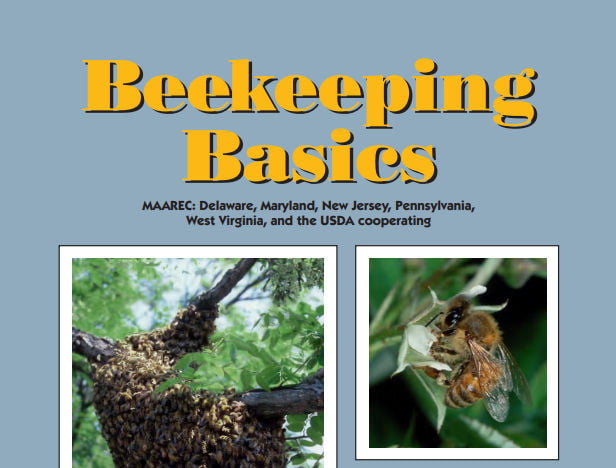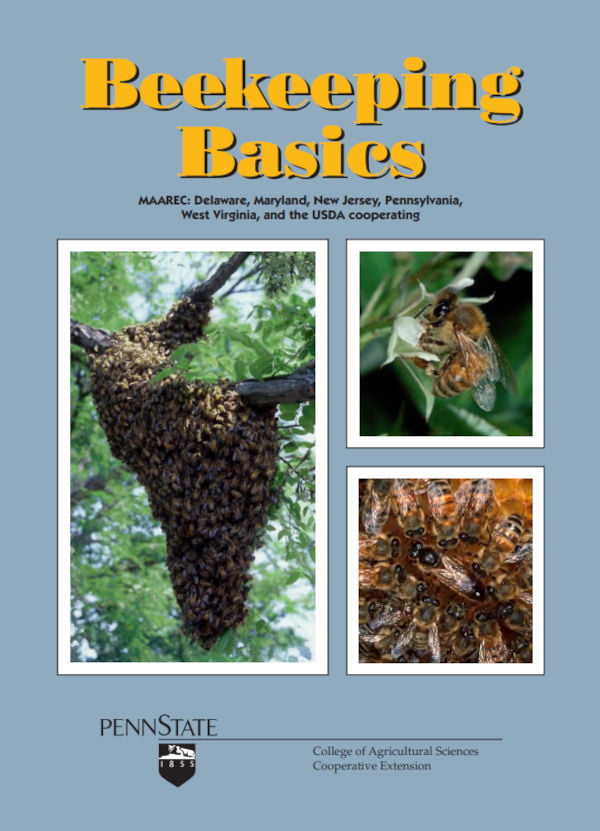Beekeeping can be a fascinating hobby, a profitable sideline, or a full-time occupation. You may want to keep bees for the delicious fresh honey they produce, for the benefits of their valuable services as pollinators, or perhaps simply for the enjoyment of learning more about one of nature’s most interesting insects.
Almost anyone can keep bees. Honey bees normally only sting to defend themselves or their colony; when colonies are handled properly and precautions are taken, stinging is not a major problem. Most beekeepers develop a tolerance for bee venom over time and have reduced sensitivity to pain and swelling. However, the few people who react strongly to bee stings and pollen or who are unable to get over fears of stings should avoid contact with bees.
Most beekeepers in the Mid-Atlantic region are hobbyists. Beekeeping is generally considered a minor industry. However, because of its interrelationship with agriculture and dependency of growers of several commodities on honey bee pollination, beekeeping is much more important than merely the value of the beeswax and honey produced annually.
This manual is all about beekeeping—understanding honey bee biology, getting started, managing bee colonies for fun and/or profit— and is designed to help you become a successful beekeeper.
Welcome to the world of beekeeping!
Delaware, Maryland, New Jersey, Pennsylvania, West Virginia, and the USDA CooperatingDownload
- Original guide prepared by Clarence H. Collison, former extension entomologist.
- Major updates and revisions prepared by Maryann Frazier, senior extension associate, Penn State, and Dewey Caron, professor of entomology and applied ecology/extension entomologist, University of Delaware.
- Contributions made by Ann Harmon and Dennis VanEnglesdorp
Beekeeping Basics: MAAREC : Delaware, Maryland, New Jersey, Pennsylvania, West Virginia, and the USDA Cooperating
- Clarence H. Collison
- Information and Communication Technologies, College of Agricultural Sciences, Pennsylvania State University, 2004
- Bee culture
- 98 pages


